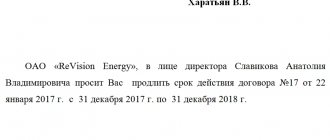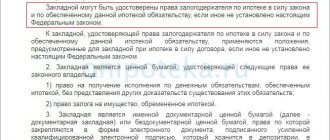A will is a kind of one-sided transaction, the condition of execution of which is the death (recognition as deceased) of the person who owns the inheritance and wishes to distribute it among his heirs.
But it is precisely the deferred execution of the transaction that opens questions about the validity period of the testamentary document and the acceptance of inheritance under it.
- Requirements for a will
- Duration of the will
- Validity period of a will for inheritance
- Consequences of missing the deadline for accepting an inheritance
- Restoring the deadline
- In what cases is it not necessary to restore the deadline for accepting an inheritance?
- Time limits for refusal to inherit under a will
- Statute of limitations for a will
Requirements for a will
The law imposes special requirements for making a will. If the form and (or) certification of the will is violated, it loses its legal force and cannot be used to inherit property.
The Civil Code provides for 4 types of wills:
- inheritance agreement or will (Part 1 of Article 1118 of the Civil Code of the Russian Federation);
- joint will of the spouses (Part 4 of Article 1118 of the Civil Code of the Russian Federation);
- closed will (Article 1126 of the Civil Code of the Russian Federation);
- a will in emergency circumstances (Article 1129 of the Civil Code of the Russian Federation).
Each of them has its own specific shape. But for most, the following requirements apply.
- The document must be certified by a notary or another person authorized by law. This requirement also applies to a will in an emergency, provided that the maker survives and the threat to his life has passed.
- The will must indicate the date and place of drawing up the document, information about the testator and heirs.
- Information about the inheritance must be available. You can transfer by inheritance not only existing real estate, rights, and other valuables, but also property that the testator intends to acquire in the future.
- The document is signed by the testator personally. If, due to objective reasons, he cannot sign the will with his own hand, a trusted person does this for him in the presence of witnesses.
Duration of the will
In civil law there is no limitation on the limitation period for wills drawn up in accordance with the requirements of the law. Therefore, there is no fundamental difference in the date of execution of the document, provided that there were no other wills or orders after it revoking it.
However, there are some reservations in the law. In particular, we are talking about wills drawn up in emergency circumstances. According to Art. 1129 of the Civil Code of the Russian Federation, the validity of a testamentary document is limited:
- a month from the date of drawing up the act, if the emergency circumstances have passed, nothing threatens the life of the testator:
- 6 months from the date of death of the testator (recognition of the testator as deceased), if the death occurred under the influence of (or as a result of, or during) extraordinary circumstances.
But all this concerns only the legal force of the document relative to the time of its preparation. For the heirs, it is important to have a slightly different validity period - the period when they can apply the document.
Is there a time limit for a will?
A testamentary document comes into force upon the death of the testator. It is impossible for third parties to open or familiarize themselves with the contents of such paper. Then the time comes for the applicants to make a decision on entering into the inheritance or refusing, as provided for by regulations.
For this, there is a period established by law, which is 6 months from the day following the day of death of the testator. During the period of time, the heir must:
- contact a notary to write a statement of desire to accept the inheritance;
- actually take over.
The legislation provides a wide choice of methods for registering rights, depending on the position of the applicant and the purposes of using the received property. If none of the methods was implemented on time, then another period of time, limited by law, takes place. It is equal to 3 years and is set aside so that the heir can restore the missed period in court if there are good reasons. The final decision on restoring the rights of the applicant is made by the court, based on the totality of the circumstances of the case.
During this entire period of time, the will does not lose its validity.
It is necessary to count the passage of time not from the moment of death of the testator, as is the case with the deadline for accepting an inheritance, but from the moment when the heir lost the reason that prevented the timely acceptance.
For example, if the applicant did not know about the right that had arisen and found out 30 years after the death of the testator, there is another 3 years to try to restore the lost right in court. The countdown begins from the moment the heir receives notification (telegram, letter) of the death of the testator and his name is indicated in the will.
All this time, the last will of the deceased will not lose relevance and will have legal force. No time periods can diminish or completely cancel the meaning and significance of the paper.
Thus, the last will, as a document, has no time limit. Coming into force after the death of the testator, it continues for an indefinite period. If it is lost or not found by the heirs, you should contact the notary office at the place where the inheritance was opened. A second copy should be kept there.
Validity period of a will for inheritance
The law determines that heirs, regardless of the method of acquiring the inheritance, must apply for its registration within a certain period. For heirs under a will, it is 6 months from the date of opening of the inheritance. This requirement is established by Art. 1154 of the Civil Code of the Russian Federation.
It is believed that the allotted time is enough for interested parties to collect the necessary documents and contact the notary with the appropriate application. Consequently, the validity period of the will after the death of the testator will be only 6 months for the heirs, as in the case of the usual acceptance of inheritance by law for heirs of the first stage.
Validity of a will after the death of the testator
The validity period of a completed will after the death of the testator is not limited by law. The fact is that the six-month period for fixing the right of succession begins not from the day of repose, but from the moment the testator contacts the notary.
We recommend reading: Testamentary assignment
When the successors in title are unaware of the death of a relative, the time period is not counted. The calculation will begin at the moment the will is opened with an employee of the notary's office. Then there will be only 6 months left to acquire heritage rights and obtain a certificate of ownership.
If the heirs did not know that a will had been drawn up, the law provides an additional 3 years for challenging the inheritance in order to restore the terms of acceptance of the deceased’s property.
Although this situation is called period restoration, in reality nothing is rehabilitated. A court decision may provide a basis for succession of heritage. Also, the judge has the right to cancel other certificates, if the issue has already been made, to redistribute shares between successors, in accordance with the wishes of the testator. The writ of execution is a justification for succession and there is no longer any need to go to a notary to register the right. You can immediately submit papers to register ownership.
Recognition of a completed will as a document subject to challenge is limited in time; only 12 months are granted.
And the assessment of the last will of the testator as void, its cancellation, can be done no later than 3 years from the date of expiration of the six-month period.
Consequences of missing the deadline for accepting an inheritance
Since the validity of a will after the death of the testator is limited to 1/2 year, the heir should declare himself as soon as possible. The fact is that if you miss the deadline, you will have to prove your right to inherit property under a will.
If the heir does not contact the notary in a timely manner, the inheritance will be distributed among the heirs according to the law of the corresponding line of inheritance. Among the first to claim the property of the deceased are:
- legal spouse who survived the deceased;
- children, and if they die before the testator - his grandchildren;
- parents.
Brothers and sisters, grandparents are called upon to inherit in order of the second priority and only if none of the primary heirs has declared themselves.
There are 7 inheritance queues in total. And if none of the heirs legally applies for the inheritance, or is deemed unworthy, or for other reasons does not accept the inheritance, the property of the deceased will go to the municipality as escheat (Article 1151 of the Civil Code of the Russian Federation).
Of course, the heir under the will will be able to claim his rights to the property by judicially restoring the period for accepting the inheritance. But even if the court recognizes the pass as valid, problems cannot be avoided.
The heir under a will has the right to claim the property due from the heir who received the inheritance within the framework of the corresponding line of inheritance. But if he sells the property, then it will no longer be possible to return the apartment or land plot. The new owner is considered a bona fide purchaser, and therefore is not obliged to return anything.
If an apartment or other real estate has been transferred to the municipality, it will be returned provided that it has not yet been transferred to new residents under a social tenancy agreement. If the contract has already been drawn up, then nothing can be done.
Therefore, the heir under the will will have to demand compensation, the amount of which is determined by the market value of the property at the current moment. But this does not mean that you will be able to quickly receive the required compensation. Such enforcement proceedings last for years.
Duration of the will for an apartment
A will in which the property left is an apartment is also valid indefinitely .
This applies to any category of real estate. But the heirs under the will should still hurry up. Because if they do not declare their rights within six months, this property will be transferred to the heirs by law.
After which the property may be alienated, which will lead to the need for additional legal proceedings.
Reference. An apartment or any other real estate can go to the state if no one claims their rights.
And the heirs will also have to prove them in court. The will itself will serve as evidence here.
Restoring the deadline
The term can be restored both in court and out of court. In the first case, you will have to prove that the deadlines were missed for a good reason. It could be:
- ignorance of the death of the testator, provided that the heir really could not establish the fact of the opening of the inheritance;
- serious illness that precludes applying for inheritance personally or through proxies;
- long-distance business trip, participation in a field expedition, etc.
The main thing is that the court considers the reason valid. For example, ignorance of the legislation on the deadline for accepting an inheritance will not be considered a basis for reinstating the deadline. But a rare personal connection can be regarded as a valid reason for late application for an inheritance.
Due to frequent updates to legislation and the legal uniqueness of each situation, we recommend obtaining a free telephone consultation with a lawyer. You can ask your question by calling the hotline number 8 (800) 555-40-36 or write it in the form below.
An alternative to judicial restoration of the period for accepting an inheritance is conciliation. To do this, the heir receives written consent from other heirs who accepted the inheritance in a timely manner. He can explain to other heirs why the deadline was missed and whether the reason is really valid. The notary will simply formalize the inheritance according to the will, if the other heirs have expressed their written consent to this.
In what cases is it not necessary to restore the deadline for accepting an inheritance?
Since Art. 1153 of the Civil Code of the Russian Federation determines the possibility of actually accepting an inheritance; the will will be valid a year later, and 5 and 7 years after the death of the testator.
According to the position of the Supreme Court, the issuance of a certificate of the right to inheritance, as well as the state registration of inherited property (if it is subject to state registration) are the right and not the obligation of the heir.
Subject to the provisions of Art. 1152 of the Civil Code of the Russian Federation, an accepted inheritance belongs to the heir from the date of opening of the inheritance. Therefore, the main thing is to have time to take steps to actually accept it within 6 months from the date of opening of the inheritance.
If the heir decides to dispose of the acquired property - sell, exchange, donate, bequeath or use as collateral, he will have to confirm the fact of acceptance of the inheritance.
It will be enough to provide the notary with evidence of actual acceptance of the inheritance. For this purpose, documents are used, from which it follows that the heir:
- paid the debts of the testator;
- received money on behalf of the testator after his death;
- incurred expenses in relation to the testator's property;
- took measures to ensure the safety of property transferred by inheritance;
- owns, uses and manages inherited property.
Important! If the notary doubts the evidence presented, the fact of acceptance of the inheritance will have to be proven in court. Before going to court, you must submit the collected documents to an inheritance law lawyer. He will determine their legal status for the court. If necessary, the lawyer will independently collect the necessary package of documents and evidence.
Time limits for refusal to inherit under a will
Heirs under a will do not always want to accept the inheritance. This may be due to the debt obligations of the testator, or the desire to transfer the property of the deceased to the heirs of the order established by law.
In any case, the heir under the will has the right not to accept the inheritance and refuse it. The period for refusal is the same 6 months from the date of opening of the inheritance. The refusal itself must be formalized in writing by a notary.
Important! A notarized renunciation of inheritance cannot be revoked, including in court. You can learn about the terms, procedure and form of refusal at an initial free consultation with a lawyer.
If the will specifies a minor child (or a person deprived of legal capacity), you will have to obtain the consent of the guardianship authorities to formalize the refusal of inheritance. This document is issued if the inherited property becomes a burden for the ward.
There is an easier way to refuse inheritance under a will: not to apply for it at all. After 6 months, the legal heirs will be able to receive certificates of inheritance, which will terminate the rights of the heir under the will.
Time limit for renunciation of inheritance under a will
A citizen is not obliged to register an inheritance. Recipients may waive their rights to the deceased's estate.
The reasons for such decisions are different - the low value of the asset, the high cost of registering an inheritance, the applicant living in a remote region, the presence of other relatives, lack of interest in the property. They do not need to be shown on the application.
If desired, the applicant can assign the property to one of the co-heirs. You can select a beneficiary only from among the heirs under the will (Article 1158 of the Civil Code of the Russian Federation).
An absolute refusal implies the transfer of property rights to the remaining applicants. If there are other heirs, then the part of the refused applicant is divided equally between them. In the absence of co-heirs, the property goes to close relatives of the deceased subject.
Refusal of an inheritance is possible within 6 months after the opening of the inheritance. If a citizen does not want to issue a targeted refusal, then inaction within the specified period is equivalent to an absolute refusal.
Statute of limitations for a will
Do not forget about the need to comply with the deadlines for challenging a will. Russian civil legislation has adopted the following limitation periods, which allow one to challenge a testamentary document and distribute the property of the deceased among the heirs according to the law.
- 1 year for contested wills. These include documents drawn up under threats, blackmail, pressure, breach of trust and other influence of third parties.
- 3 years for void wills. These are considered documents drawn up in violation of mandatory legal requirements. For example, this may be the absence of a notarization, the date of drawing up the document, etc.
The limitation period for this type of case is not counted from the date of opening of the inheritance. The countdown begins from the moment when the interested party either learned or should have learned about the violation of his legal rights and interests.
Due to frequent updates to legislation and the legal uniqueness of each situation, we recommend obtaining a free telephone consultation with a lawyer. You can ask your question by calling the hotline number 8 (800) 555-40-36 or write it in the form below.
Statute of limitations for a will
The statute of limitations is the period of time after which a legal action or document loses its significance. Many decisions, debts, obligations, and legal procedures lose significance after the expiration of the statute of limitations period established by law. A will, as a document drawn up from the testator’s orders, does not have a specific limitation of limitation. It remains valid after 10, 20 or more years.
However, there is a statute of limitations for accepting the estate under a will. It is equal to 3 years after the interested person has the opportunity to acquire rights.
Thus, the documented last will of the testator has no limitation in validity and has no limitation of limitation. It retains its original meaning years after entry into force. By making a will, the testator forever determines the fate of the property and the order of distribution between the claimants. If the testamentary document has not been contested, as a result of which it has been canceled or partially annulled, it has legal significance indefinitely.








